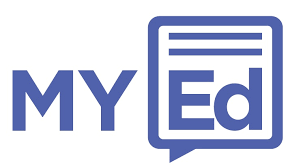Dereham St. Nicholas Junior School
Assessment Principles
Effective assessment systems:
Give reliable information to parents about how their child is performing
- Allow meaningful tracking of pupils towards end of key stage expectations in the new curriculum, including regular feedback to parents.
- Provide information which is transferable and easily understood and covers both qualitative and quantitative assessment.
- Differentiate attainment between pupils of different abilities, giving early recognition of pupils who are falling behind and those who are excelling.
Help drive improvement for pupils and teachers
- Are closely linked to improving the quality of teaching.
- Ensure feedback to pupils contributes to improved learning and is focused on specific and tangible objectives.
- Produce recordable measures which can demonstrate comparison against expected standards
- Reflect progress over time.
Our approach to assessment
- Assessment is integral to high quality teaching and learning. It helps us to ensure that our teaching is appropriate and that learners are making expected progress.
- All staff are regularly trained in our approach to assessment.
- We have a senior leader who is responsible for assessment.
Our method of assessment
- Assessment serves many purposes, but the main purpose of assessment in our school is to help teachers, parents and pupils plan their next steps in learning.
- We also use the outcomes of assessment to check and support our teaching standards and help us improve.
- Through working with other schools and using external tests and assessments, we will compare our performance with that of other schools.
- We assess pupils against assessment criteria, which are short, discrete, qualitative and concrete descriptions of what a pupil is expected to know and be able to do.
- Assessment criteria are derived from the school curriculum, which is composed of the National Curriculum and our own local design, in collaboration with Pupil Asset.
- Each pupil is assessed as either ‘developing’, ‘meeting’ or ‘exceeding’ each relevant criterion contained in our expectations for that year.
- Where a pupil is assessed as exceeding the relevant criteria in a subject for that year they will also be assessed against the criteria in that subject for the next year. For those pupils meeting and exceeding the expected standards, we provide more challenging work.
- Assessment judgements are recorded and backed by a body of evidence created using observations, records of work and testing.
- Assessment judgements are moderated by colleagues in school and by colleagues in other schools to make sure our assessments are fair, reliable and valid.
Our use of assessment
- Teachers use the outcomes of our assessments to summarise and analyse attainment and progress for their pupils and classes.
- Teachers use this data to plan the learning for every pupil to ensure they meet or exceed expectations. Teachers and leaders analyse the data across the school to ensure that pupils identified as vulnerable or at particular risk in this school are making appropriate progress and that all pupils are suitably stretched.
- The information from assessment is communicated to parents and pupils on a termly basis through a structured conversation. Parents and pupils receive information of what has been achieved and indications of what they need to do next.
- We celebrate all achievements across a broad and balanced curriculum, including sport, art and performance, behaviour, and social and emotional development.
![]()



